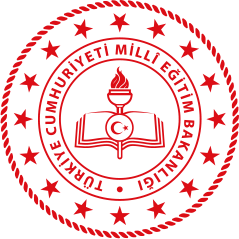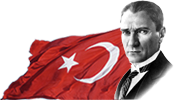LANGUAGE POLICY
ANKARA TURK TELEKOM SOCIAL SCIENCES HIGH SCHOOL
LANGUAGE POLICY
Our school's language policy is founded on the belief that all students can learn the language. Our students are encouraged to rely on themselves for their language skills, and to take responsibility for their own language development. Our school offers the students a variety of opportunities via international projects and the curriculum subjects to meet with different languages and cultures and to examine them.
All students in our school;
• are aware of the importance of learning a language.
• learn different languages and use them in order to communicate, to think, to learn, to have an active role in the community and to ensure their personal development.
• are self-confident when they are using the mother tongue, the second and the third language.
• understand the cultural and ethnic differences.
Overview
• Our school's teaching language is Turkish.
• Learning the mother tongue is very important to improve the educational, individual and cultural identity.
• Our school is aware that language education develops not only the mother tongue; it also improves the foreign language proficiency in children. Our teachers work theoretically and practically in a systematic way to teach the mother tongue and the foreign languages without impacting negatively teaching any of these languages.
• Students may transfer their skills and knowledge of mother tongue to other languages they learn.
• Our school encourages students to learn more languages to be multilingual.
• Teaching of English constitutes a part of our school philosophy. English is taught as a course.
• German is taught as a third language.
• Ottoman Language is taught as a written language.
• School-related information (signs, school website, brochures, billboards, etc.) are published in one or a few of Turkish, English, German and Ottoman languages.
• Students take national and international exams in Turkish, English and German. They participate in competitions.
• Foreign language teachers are encouraged to participate in activities such as workshops, conferences, seminars, etc to continue their professional development at home and abroad.
• All teachers are encouraged to learn a second language. They are provided the opportunity to participate in foreign language courses.
• The salaries of teachers are increased if they know a foreign language at a certain level and can certify it.
• Reading, writing, listening and speaking activities are believed to have a positive effect on language improvement. Therefore, effective use of the library, reading activities in school or out of the school, media literacy and movie reading activities, the use of dictionaries are encouraged.
Resources
There are many sources in different languages for the use of our teachers and students in the library. In addition to the books and materials of different languages in the library, CDs, DVDs, interactive whiteboards, posters, story cards, word cards, authentic materials (newspapers, magazines, booklets, cards, menus, tickets.) are also available in the staff rooms for the Turkish and foreign languages' teachers.
Parent Involvement
Since the views of parents influence the language learning process of students, parents have an important role in the language policy development. Therefore, the school organizes parent meetings and seminars to make parents aware of language learning process.

